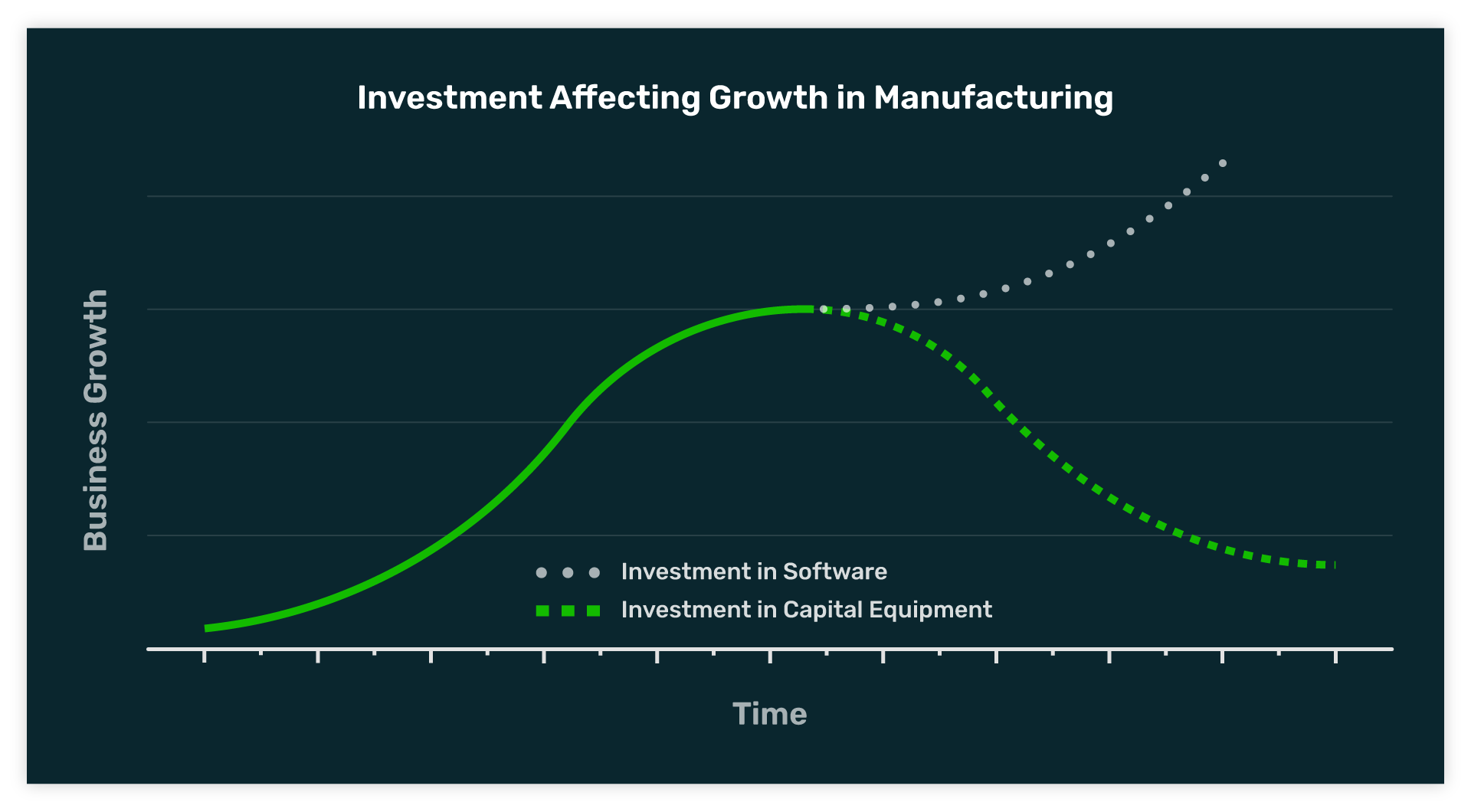
With a move towards the Factory of the Future already in progress, the question many people are asking is:
What about humans?
Within this future vision for manufacturing (and so many other sectors) will humans become the redundant workforce within the manufacturing industry?
It’s easy to think that as new technologies emerge and systems become smarter, processes automated, and robotics dominate that there will be less need for a manually skilled workforce.
In this post, we’ll dive into the role of the workforce in the Factory of the Future and why humans are still vitally important and very much have a part to play.
Increasing capacity, NOT decreasing your workforce
No employer likes to think about the prospect of having to reduce the size of their workforce and lay off valuable employees, and that’s no different when it comes to manufacturing.
While a shift towards the Factory of the Future means your manufacturing operation will take on new, smarter technologies and automate many of your manual processes, that doesn’t mean that your staff need to be made redundant because their duties are being performed by computers, microchips and robots.
What it does mean is that you can implement smart manufacturing software solutions, such as DELMIAWorks, and increase your capacity whilst maintaining the size of your workforce, allowing for exponential growth in your business.
It’s about making sure that your resources are properly utilised and being able to do more with the resources that you already have at your disposal.
As you begin to invest in smart solutions to increase your capacity, you may find that you need some of your employees’ roles to change and adapt to the new systems that are being implemented in the business.

Changes to the roles of your workforce
It’s safe to say that every employee, in just about every manufacturing business, will be affected in some way by digitisation as manufacturers move beyond Industry 4.0 to the Factory of the Future, but that’s not to say that these effects need to be considered as a negative.
It provides a prime opportunity for employers to upskill employees, teach them new software/systems, new processes and generally improve the way they work to increase the productivity of the business.
With manufacturing processes using interconnected, intelligent systems, you need technology savvy staff to programme, run and manage these systems, and that’s where upskilling staff from manual, labour-intensive roles into more knowledge-based roles becomes incredibly important.
Having your staff move into knowledge-based roles means putting them in charge of interpreting the data that is being produced by the smart software and then knowing exactly what to do with the information that they have in the palm of their hands.
Whether that be proactively preventing downtime on a machine, or making changes to workflows, these new knowledge based roles for workers all share a common goal, making the manufacturing process run more efficiently.
We firmly believe that the roles of the workforce will change with the digitisation of the manufacturing industry, but we see it as being for the better, as it upskills individuals and allows businesses to operate more efficiently and grow exponentially.
Investing in the right areas – do more, with less
Investment is always a key part in giving your business the space in which it needs to grow.
And this makes investing in the right areas absolutely essential, as a poor investment will add additional costs and potentially prevent future growth in your company.
As an example, investing in additional capital equipment or machinery might seem like a logical approach to tackling increased demand in your business.
However, that might also mean you need to acquire an additional member of staff, and train them, to operate this machinery, which increases the cost of the investment.
This investment also brings its own new issue – once the demand has been met, you now have additional resources and overheads on your shop floor, which may become redundant once the growth plateaus.

Instead of investing in capital equipment, we strongly recommend manufacturers to consider, and invest in, the software that they use in their manufacturing operation.
By investing in smart software, such as DELMIAWorks, businesses are able to identify inefficiencies in their production process, proactively plan for any potential issues, and dynamically incorporate planned maintenance around their production schedules.
Investing in software helps to alleviate bottlenecks in your production process, without the need for additional equipment or personnel, allowing you to get the most out of the equipment that you already have and essentially achieve more with less.
This provides your business with the scalability to grow without the need for additional investment and this can lead your business into a period of exponential growth, or even continued growth if the software was brought in following a recent spike.
Learn more about how DELMIAWorks could help your business work towards the Factory of the Future
DELMIAWorks ERP and MES software specialises in providing manufacturers with the data and insights they need to be able to make informed decisions about their business.
Learn more about what DELMIAWorks can do to support your business in working towards Factory of the Future today.
Learn More >>
Posted by Rob on 29th November 2021.

